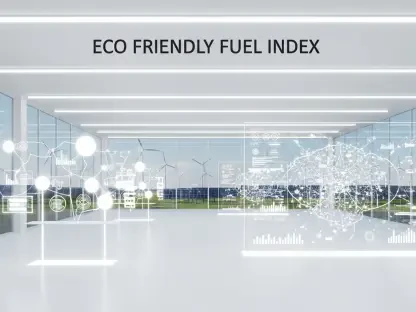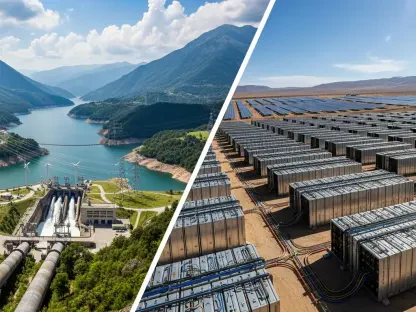In a groundbreaking turn of events, a significant legal case in Germany has shed light on the potential accountability of fossil fuel companies for their contributions to climate change. This investigation into climate accountability centers on Saul Luciano Lliuya, a farmer from Peru, who took legal action against the energy giant RWE. Lliuya’s claim involved holding the company accountable for the threats posed by melting glaciers in the Andes, specifically the increased flood risk to Lake Palcacocha, which looms large above his home in Huaraz, Peru. His argument was predicated on the assumption that RWE’s hefty carbon emissions, constituting about 0.5% of global emissions since the onset of the industrial era, directly contributed to the environmental changes now threatening his home. Despite the court ruling against Lliuya by stating that the specific flood risk did not satisfy the legal requirements for damage compensation, the proceedings are hailed as a notable landmark in the realm of climate litigation.
Legal Precedents and Corporate Accountability
The court’s decision, while seemingly a defeat for Lliuya, represents a pivotal moment in establishing legal precedents regarding corporate accountability for climate change. By taking on RWE, Lliuya has made significant strides in proving that communities worldwide may have a legal footing to seek compensation when affected by climate change attributable to corporate emissions. Noted climate lawyer Dr. Roda Verheyen, representing Lliuya, described the judgment as a “milestone,” not merely for the claimant but for the global community. This decision implies a tacit acknowledgment of corporate responsibility for climate change, indicating that entities contributing significantly to carbon emissions might be accountable for their actions. Joana Setzer, an associate at the Grantham Research Institute, emphasized the case’s affirmation of the principle that companies can be held liable for past emissions that cause contemporary damage.
Globally, more than sixty similar legal cases exist, pushing for accountability from corporations for climate change impacts. These lawsuits invoke the principles highlighted by Lliuya’s case, reinforcing the foundations for holding companies responsible for years of unchecked emissions contributing to environmental harm. The ongoing developments in climate attribution science, which achieve ever-increasing precision, further support such cases, allowing blame to be assigned more convincingly to specific companies or industries. This scientific advancement is instrumental in building a framework that might compel fossil fuel corporations to bear the costs of their historical pollution, extending the legal debate to firms in countries like Japan and the United States that have similar legal systems.
Fossil Fuel Industry’s Defense and Unsettling Realities
The German court’s ruling is significant for another reason: it has actively countered some of the fossil fuel industry’s recurring defenses. Historically, these corporations have deflected responsibility, arguing that comprehensive climate action should be orchestrated by governments through policy. However, the judiciary’s verdict in this landmark case counteracts this narrative by acknowledging that legal systems have a role in addressing climate accountability. This provides a reality check for an industry that has long sought to position itself as a passive participant in climate change while benefiting significantly from the carbon economy. The failure of familiar defense strategies underscores the potential for legal systems to address climate grievances, even if government policies stall or falter.
This shift toward climate litigation reflects broader societal shifts, as public consciousness about climate impacts grows. Focusing on climate attribution science can reframe traditional narratives, transforming pure ideological debates into legal matters subject to judicial review. This emergence is of particular significance in countries like the United States, where municipalities and states increasingly challenge fossil fuel companies by filing lawsuits for climate-related damages. Such cases emphasize how the evolving science of climate attribution threatens ingrained narratives held by fossil fuel companies, shifting responsibility back onto them and reinforcing the idea that industry, too, has an obligation to address climate change ramifications.
Future Implications for Climate Litigation
The implications of this case are vast for the future of climate litigation, both in Europe and globally. By rejecting common defensive maneuvers used by fossil fuel corporations, the court has set a valuable example that could empower future plaintiffs, encouraging those affected by climate change to seek justice. These shifts in legal interpretation recognize that tackling the climate crisis requires addressing historical emissions and holding major polluters accountable for their disproportionate impact on the world’s environmental health. The continued advancement of climate science offers more precise insights into the roles specific companies play in escalating climate changes, building the evidentiary basis upon which future claims could rest.
The broader ramifications are clear: the fossil fuel industry faces mounting pressure to redefine its role in the contemporary world, where environmental stewardship and climate responsibility are critical. The ruling signals an era where fossil fuel companies may no longer escape scrutiny through lobbying and denial but will have to navigate lawsuits and public examinations of their past and present environmental practices. This ongoing tension between past practices and future responsibility suggests a landscape where climate litigation remains a potent tool for those seeking to hold corporations accountable. The case of Lliuya v. RWE serves not just as a testament to individual bravery but as a precursor to a shifting legal climate increasingly inclined to challenge the status quo of climate complacency.
Transforming Corporate Accountability
The court’s decision, though seemingly unfavorable for Lliuya, marks a crucial shift in legal precedents concerning corporate accountability for climate change. By challenging RWE, Lliuya has advanced the argument that communities globally may have grounds to seek compensation for climate impacts linked to corporate emissions. Climate lawyer Dr. Roda Verheyen, representing Lliuya, described this judgment as a “milestone,” not only for the claimant but for the broader international community. This ruling hints at an acknowledgment of corporate responsibility for climate change, suggesting that companies significantly contributing to carbon emissions could be held accountable for their actions. Joana Setzer from the Grantham Research Institute stressed the case’s affirmation that past emissions from companies could indeed result in liability for current damages.
Globally, over sixty similar lawsuits are underway, seeking to hold corporations accountable for climate change effects. These cases rely on principles akin to those in Lliuya’s situation, reinforcing the foundation for holding firms accountable for years of unchecked emissions and related environmental consequences.









